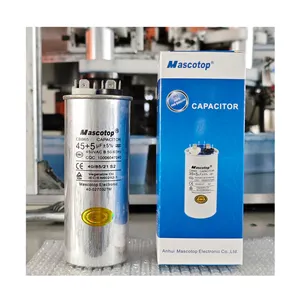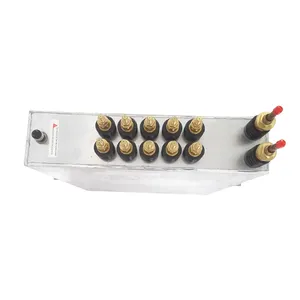CNC Capacitors: An Overview
Capacitors are fundamental components in the realm of electronics, and CNC capacitors stand out as specialized variants designed to meet the rigorous demands of computer numerical control (CNC) machinery. These capacitors are integral in smoothing power supply fluctuations and ensuring the precision and efficiency of CNC equipment.
Types and Applications
The types of CNC capacitors include ceramic, aluminum electrolytic, and other specialized capacitors. Each type serves a unique function, from managing high-frequency interference in ceramic models to providing bulk capacitance and energy storage in aluminum electrolytic versions. Their applications span across various industries, aiding in the operation of CNC machines for automotive manufacturing, industrial automation, and more.
Features and Materials
CNC capacitors are characterized by their robustness and stability. Materials used in their construction, such as high-grade ceramic and premium aluminum, are selected for their ability to withstand the operational stresses encountered in CNC applications. These materials contribute to the capacitors' overall durability and performance consistency.
Advantages of CNC Capacitors
The advantages of using CNC capacitors are numerous. They enhance the performance of CNC machines by stabilizing voltage, reducing power losses, and improving response times. This leads to increased efficiency in CNC operations, which is crucial for productivity and precision in manufacturing processes.
Selection Considerations
When selecting CNC capacitors, it is important to consider factors such as capacitance value, voltage rating, and size. These specifications must align with the requirements of the CNC machinery to ensure optimal compatibility and performance.
Environmental and Operational Standards
CNC capacitors are designed to meet various environmental and operational standards. These standards ensure that the capacitors can operate effectively under different conditions, such as varying temperatures and humidity levels, without compromising their functionality or the safety of the CNC equipment.










































 浙公网安备 33010002000092号
浙公网安备 33010002000092号 浙B2-20120091-4
浙B2-20120091-4